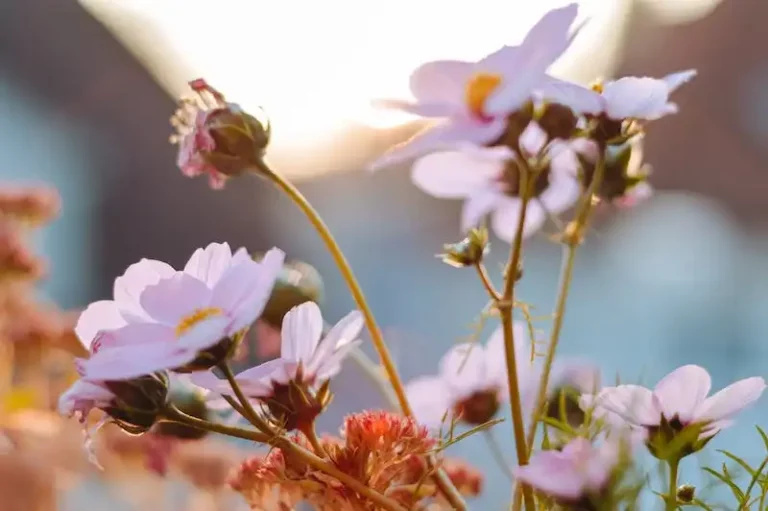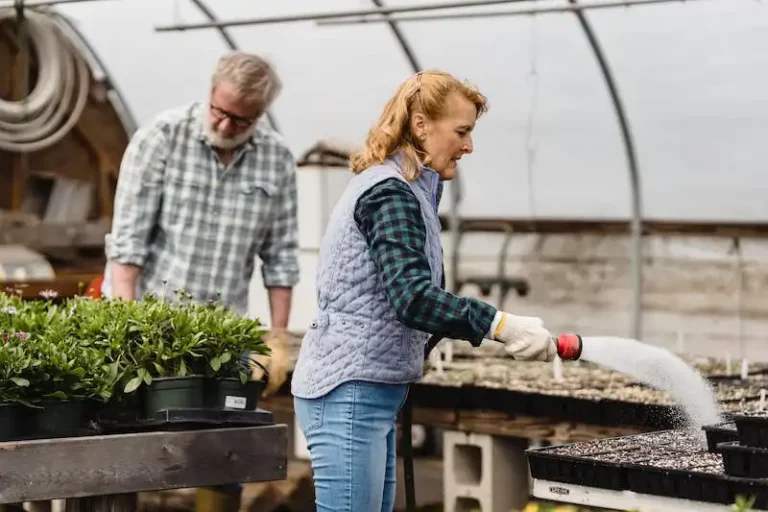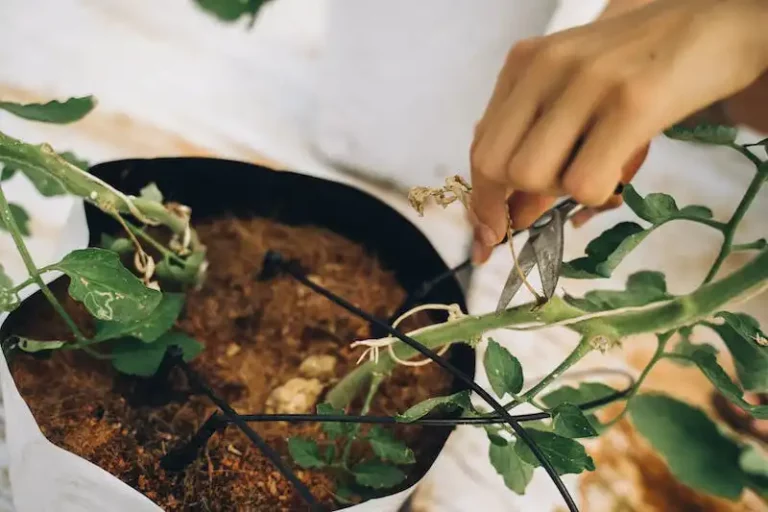Composting with coffee grounds can be a good way to improve your soil and make your garden more productive. Coffee grounds are a popular material to compost because they are rich in nitrogen, which is essential for plant growth. In addition, coffee grounds can help suppress weeds and repel pests like slugs and mosquitoes.
If you’re wondering where to get coffee grounds for composting, you can learn to compost with coffee grounds from several sources. Many coffee shops will give away their used coffee grounds for free, so you can use them as a fertilizer for your garden. You can also collect your own coffee grounds at home, especially if you’re an avid coffee drinker.
Composting with coffee grounds is easy and can be done in several ways. If you have a compost pile or bin, you can simply add the coffee grounds directly to the pile. You can also mix the coffee grounds with other organic materials, like leaves or grass clippings, to make a compost heap. Some people even use coffee grounds as a mulch for their plants, which can help improve soil moisture retention and suppress weeds.
But how exactly do coffee grounds help in composting? Coffee grounds are a source of organic material that can help feed the microorganisms in your compost pile, which will break down the materials and turn them into nutrient-rich compost. Coffee grounds also help improve the texture of your soil, making it more crumbly and well-draining. This is especially beneficial for plants that prefer well-drained soil, like beets or asparagus.
When using coffee grounds for composting, it’s important to note that they should be used in moderation. Coffee grounds are considered a “green” or nitrogen-rich material, so they should be balanced with “brown” or carbon-rich materials, like leaves or wood chips. A ratio of 1 part coffee grounds to 8 parts other materials is a good rule of thumb. Additionally, coffee grounds should be spread thinly on the surface of the compost pile or added in small amounts to avoid clumping and preventing air circulation.
In conclusion, composting with coffee grounds can be a simple and effective way to improve your garden soil and provide your plants with the nutrients they need. Coffee grounds are easily accessible and can be obtained for free from coffee shops or collected at home. By using coffee grounds in your compost pile, you can create a nutrient-rich fertilizer that will help your plants grow and thrive.
10 Ways to use Coffee in your Garden
Coffee grounds are not only great for brewing your morning cup of joe, but they also have many benefits for your garden. Here are 10 ways you can use coffee in your garden:
1. Mulch: Coffee grounds make an excellent mulch material. Spread a thin layer of coffee grounds around your plants to suppress weeds and retain moisture in the soil.
2. Worm food: Coffee grounds are a favorite food source for worms. Mix coffee grounds into your compost pile to attract worms, which will help break down the organic material and improve the nutrient content of the compost.
3. Fertilizer: Coffee grounds are rich in nutrients such as nitrogen, phosphorus, and potassium. Mix coffee grounds into the soil or make a liquid fertilizer by steeping the grounds in water for a few days. Then, use this mixture to feed your plants.
4. Compost enhancer: Adding coffee grounds to your compost pile can speed up the decomposition process and provide essential carbon for the formation of rich, dark compost.
5. Pest prevention: Coffee grounds can help deter pests such as slugs and ants. Spread coffee grounds around vulnerable plants to create a barrier that these pests will avoid.
6. Disease prevention: Coffee grounds contain compounds that can help suppress certain plant diseases, such as fungus. Mix coffee grounds into the soil or apply them as a thin layer around affected plants to prevent the spread of disease.
7. Improving soil structure: Coffee grounds can help improve the structure of clay soils by adding organic matter. Mix coffee grounds into the soil to break up heavy clay and improve drainage.
8. Green mulch: Coffee grounds can be used as a green mulch by mixing them with grass clippings or other green materials. Spread this mixture over the soil to provide a nutrient-rich mulch that will break down and improve the soil over time.
9. Indoor plants: Use coffee grounds as a top dressing for your indoor plants. The grounds can help retain moisture and provide a slow release of nutrients as they break down.
10. Seed starting: Coffee grounds can be used as a starting medium for seeds. Mix coffee grounds with potting soil to create a nutrient-rich mixture that will promote seed germination and provide initial nutrients for young seedlings.
These are just a few ways you can make use of coffee in your garden. Experiment with different methods and see which ones work best for your plants. With the added benefits that coffee brings, you’ll be well on your way to mastering your garden.
1 Compost
Compost is a mixture of organic matter that is left to decompose and form a nutrient-rich fertilizer. Using coffee grounds in composting is a great way to get free, nutrient-rich material for your garden. In fact, coffee grounds are so good for composting that some people use them as the main source of organic matter for their compost pile!
When using coffee grounds in compost, here’s what you need to know:
- Coffee grounds are considered a green material, meaning they are rich in nitrogen.
- They are especially good for composting because they break down quickly and help to retain moisture in the compost pile.
- Some people worry that coffee grounds may be too acidic for composting, but in fact, they have a pH level close to neutral.
- Although coffee grounds can be added directly to compost, it’s best to mix them with other organic matter to create a balanced compost pile.
- Don’t add too many coffee grounds to your compost pile all at once, as it can create a clumpy mixture that doesn’t break down easily.
- In addition to being a great fertilizer, coffee grounds can also be used as a mulch around acid-loving plants like azaleas, rhododendrons, and blueberries.
- Coffee grounds also have some pesticide properties and can help to suppress harmful insects and pests in the garden.
So, whether you’re composting or using coffee grounds as a mulch, they can be a great addition to your gardening routine. Just remember to use them in moderation and mix them with other organic matter for best results!
2 Soil enhancer
Used coffee grounds are an easy and abundant source of soil enhancer for your garden. Instead of throwing away your coffee grounds, you can repurpose them to improve the health of your soil and help your plants thrive. Coffee grounds are considered a “green” material, which means they are rich in nitrogen, an essential nutrient for plant growth.
When used as a soil enhancer, coffee grounds provide several benefits:
- Improves soil structure: Coffee grounds help to improve the structure of the soil by adding organic matter. This can help with water drainage, improve moisture retention, and create a loose and crumbly texture, which is ideal for plant roots to grow and thrive.
- Enriches the soil with nutrients: Coffee grounds contain a good amount of nitrogen, as well as other essential nutrients such as potassium and phosphorus. These nutrients are necessary for plant growth and can help to boost their health and vigor.
- Increases beneficial organisms: Coffee grounds can attract beneficial organisms to your soil, such as earthworms and fungi. Earthworms help to aerate the soil and improve its fertility, while fungi break down organic matter and release nutrients for plants to absorb.
- Prevents weeds: Coffee grounds can act as a natural mulch to suppress weed growth. They create a barrier that blocks sunlight from reaching weed seeds, preventing them from germinating and growing in your garden.
There are several ways you can use coffee grounds as a soil enhancer, depending on your preference:
- Mix them directly into the soil: You can mix coffee grounds directly into the soil before planting. This will help to enrich the soil with nutrients and improve its structure.
- Use them as a mulch: Coffee grounds can be spread around the base of plants as a mulch. This will help to retain moisture, prevent weed growth, and gradually release nutrients into the soil as they break down.
- Create a coffee grounds compost: You can also create a compost specifically for coffee grounds. Mixing coffee grounds with other organic materials such as vegetable scraps, grass clippings, and leaves will create a nutrient-rich compost that can be used to fertilize your plants.
It’s important to note that although coffee grounds are generally beneficial for most plants, they are considered acidic. This means that they work best for acid-loving plants such as blueberries, tomatoes, roses, and azaleas. If you have plants that prefer neutral or alkaline soil, it’s best to use coffee grounds sparingly or avoid them altogether.
So, the next time you brew your cup of coffee, don’t throw away the used grounds. Instead, put them to good use in your garden as a soil enhancer. Your plants will thank you for it!
3 Mulch
Mulching is a popular technique used in gardening to enhance soil health and productivity. Coffee grounds can be used as a mulch, providing various benefits to your garden. Here are some of the specific uses of coffee grounds as mulch:
1. Nutrients: Coffee grounds contain important nutrients, such as nitrogen, potassium, and phosphorus, that can be beneficial for plants. When used as mulch, coffee grounds slowly release these nutrients into the soil, providing a natural fertilizer for your plants.
2. Moisture retention: Coffee grounds act as a moisture retainer, helping to keep the soil hydrated for longer periods. This can be especially beneficial in dry climates or during drought conditions.
3. Weed suppression: Coffee grounds can help in weed control by providing a barrier on the soil surface. This barrier helps to prevent weed seeds from germinating and competing with your plants for nutrients and water.
4. Pest deterrent: Coffee grounds have been found to ward off certain pests, such as slugs and snails. These pests do not like the texture of coffee grounds and will avoid crossing over them. Sprinkling coffee grounds around plants susceptible to slug and snail damage can help protect them.
5. Disease prevention: Some research suggests that coffee grounds have antimicrobial properties that can help prevent certain plant diseases. These antimicrobial properties may suppress the growth of harmful pathogens in the soil, reducing the risk of disease outbreak in your garden.
How to use coffee grounds as mulch:
1. Collect used coffee grounds from your daily brew. You can save them in a container or directly add them to your garden.
2. Spread a thin layer of coffee grounds around the base of your plants. Be careful not to pile too thick of a layer, as this can create a compacted barrier that may hinder water and air circulation.
3. Water the coffee grounds after application to help them settle into the soil.
4. While coffee grounds can be used as mulch, it’s important to note that they should not be the only mulching material in your garden. Mixing coffee grounds with other organic mulch sources, such as shredded leaves or wood chips, will help build a more productive and balanced mulch.
5. If you are using coffee grounds obtained from coffee shops, make sure they are free from additives or flavoring. It’s best to use coffee grounds that have been brewed without any additional ingredients.
According to Oregon State University Extension, coffee grounds should not be relied upon as the sole source of nutrients for plants. It’s best to use them as a supplement to other organic fertilizers and soil amendments.
In addition to being a valuable mulching material, coffee grounds can also be composted to further enrich the soil. Adding coffee grounds to your compost pile or bin will help speed up the decomposition process and turn them into nutrient-rich compost.
When using coffee grounds as mulch or in compost, it’s important to use them in moderation. Excessive use of coffee grounds can make the soil too acidic, which may not be suitable for certain plants. It’s always a good idea to do some research and consider the specific needs of your plants before applying coffee grounds in large quantities.
In summary, coffee grounds can be a beneficial mulch in your garden, providing nutrients, moisture retention, weed suppression, pest deterrence, and disease prevention. However, they should be used in conjunction with other organic materials to create a well-balanced mulch. Remember to use coffee grounds in moderation and consider the specific requirements of your plants for optimal results.



